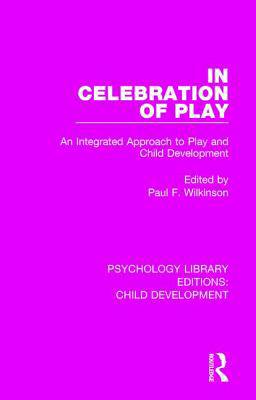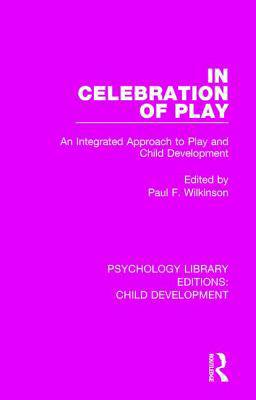
- Retrait gratuit dans votre magasin Club
- 7.000.000 titres dans notre catalogue
- Payer en toute sécurité
- Toujours un magasin près de chez vous
- Retrait gratuit dans votre magasin Club
- 7.000.0000 titres dans notre catalogue
- Payer en toute sécurité
- Toujours un magasin près de chez vous
In Celebration of Play
An Integrated Approach to Play and Child Development
Description
Play is the child's way of learning about, adapting to and integrating with his or her environment. In addition to adequate sports and recreation facilities children need a wide variety of opportunities, choices and raw materials that they can use as they see fit for free constructive creative play. Originally published in 1980, these essays, drawn from papers given at the International Playgrounds Association's Seventh World Congress, focus on the social significance of play. However, both the Association and the book itself are not solely concerned with 'playgrounds' in the formal sense; rather, they are concerned with the wide range of play environments that are - or should be - available to children. It is recognised that play opportunities can exist for the child in and around the home (playrooms, backyards), the school and public park (traditional, adventure and creative playgrounds), the institution (day-care centres, hospitals), and the city qua city (the streets and shopping centres). This work is concerned with all these environments, considering the developmental aspects of play in a social context.
The varied contributions from researchers and play leaders from several countries, consider such topics as the importance of play, development through play, leadership training and special groups.
Spécifications
Parties prenantes
- Editeur:
Contenu
- Nombre de pages :
- 324
- Langue:
- Anglais
- Collection :
- Tome:
- n° 17
Caractéristiques
- EAN:
- 9781138058132
- Date de parution :
- 07-12-17
- Format:
- Livre relié
- Format numérique:
- Genaaid
- Dimensions :
- 140 mm x 216 mm
- Poids :
- 521 g

Les avis
Nous publions uniquement les avis qui respectent les conditions requises. Consultez nos conditions pour les avis.





